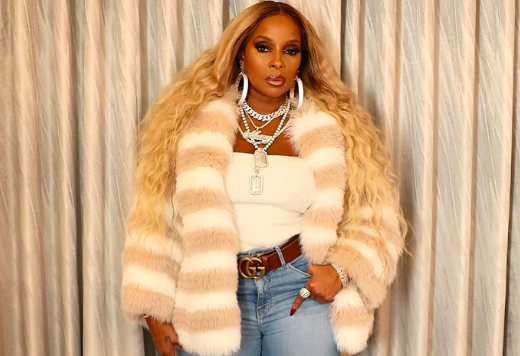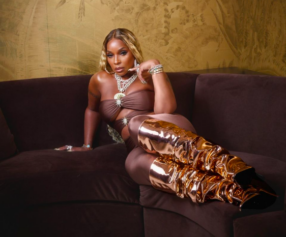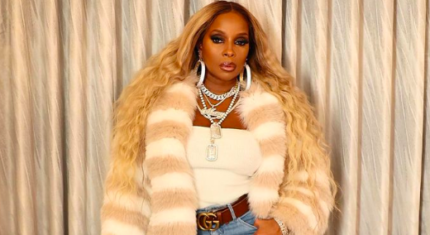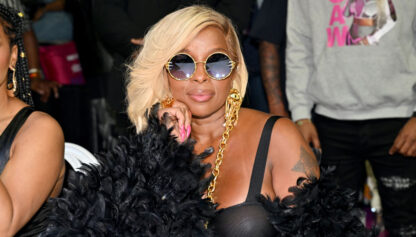A Hulu docuseries exploring fashion’s evolution during the “Digital Decade,” featured Mary J. Blige and her longtime friend and stylist Misa Hylton, who exposed a harsh reality: what they claimed was race-based consumer discrimination in high-end fashion in the ’90s.

Despite laws prohibiting such practices, Blige, now a nine-time Grammy winner and a global icon, was still a victim of prejudice, she said.
Mary J. Felt Not Welcomed
In the streaming series, “In Vogue: The ’90s,” on the fifth episode, “Hip Hop Takes Fashion,” the producers shined a light on hip-hop’s growing influence on the fashion world during that era.
Now Streaming on #DisneyPlus and #Hulu
— Kenny @Disney+ (@iKenny_J) September 13, 2024
In Vogue: The 90s
Told through the eyes of Vogue editors Anna Wintour, Edward Enninful, Tonne Goodman, Hamish Bowles, and an A-list cast; from Kate Moss, Kim Kardashian, and Victoria Beckham to Mary J. Blige -"In Vogue: The 90s" reveals… pic.twitter.com/ozoCk9xsbY
But for Blige and Hylton, breaking down the doors in the high fashion scene wasn’t just about style. At times, for the two young women just starting out in entertainment, it was a painful lesson on bigotry and about fighting through the subtle, yet pervasive, racial discrimination that kept them from being fully embraced.
“Mary J. Blige is the first artist I ever styled,” Hylton shared, recounting their early experiences together.
But what should have been a glamorous shopping spree soon turned into an encounter with bias.
Blige and Hylton recalled visiting a high-end boutique where they were met with blatant discrimination. They weren’t told directly that they didn’t belong, but the store’s actions spoke volumes.
“When it’s time to pay, the sales associate keeps telling us, ‘The card’s declining.’ They keep trying,” Hylton explained. After repeated attempts and calls to the credit card company, it became clear: the card wasn’t being processed at all.
She and Blige later called and verified that the credit card had not been declined. The sales associate, Hylton claims, hadn’t really tried to complete the sell. It seems, the two women feel, the store just didn’t want to sell to them.
“Oh, OK. You don’t want us to buy these items,” Hylton remarked, noting that the boutique likely had an issue with the two young Black women making such a large purchase.
“They didn’t even realize who Mary J. Blige was yet. … They didn’t see their brands on us,” she rationalized. The incident happened at the beginning of Blige’s career.
Blige, who had just released her groundbreaking debut album “What’s the 411?” in 1992, added that the boutique staff treated them as if they didn’t belong in the store at all.
“They were treating us like little street kids. They didn’t want to — they probably didn’t want to take our business.”
In her view, the dismissive treatment wasn’t just because of their age; it was about race and class, and the assumption that two young Black women couldn’t possibly afford the luxury items they were looking to buy.
Despite the indignities, neither Blige nor Hylton named the boutique that mistreated them. It was an act of grace, but perhaps a recognition of the gravity of the situation.
What the boutique did was illegal under the Federal Civil Rights Act of 1964, which prohibits discrimination based on race, color, or national origin, among other protected categories. Businesses, including boutiques, are legally required to serve all customers fairly, regardless of their appearance or background, CNN informs.
Blige and Hylton could have taken legal action, but instead, they continued to pave the way for other artists of color to break into high fashion and establish themselves as forces to be reckoned with. The incident serves as a reminder of the hurdles they had to overcome just to be seen and respected in spaces that weren’t designed for them.
Fast forward to today, and Blige’s influence on both music and fashion is undeniable. Her net worth has grown to an estimated $20 million, and she’s set to be inducted as one of only 45 Black women ever admitted into the Rock & Roll Hall of Fame, Billboard reports, since 1983.
She also released a new boot collaboration with the Italian fashion house Giuseppe Zanotti this year. The metallic collection sold out in one day, with shoppers paying over $1200 for a pair.
The same boutiques that once dismissed her are now likely eager to cater to her every need.
The “No More Drama” singer said, “They weren’t treating us the way they treat us now. Absolutely not!”




